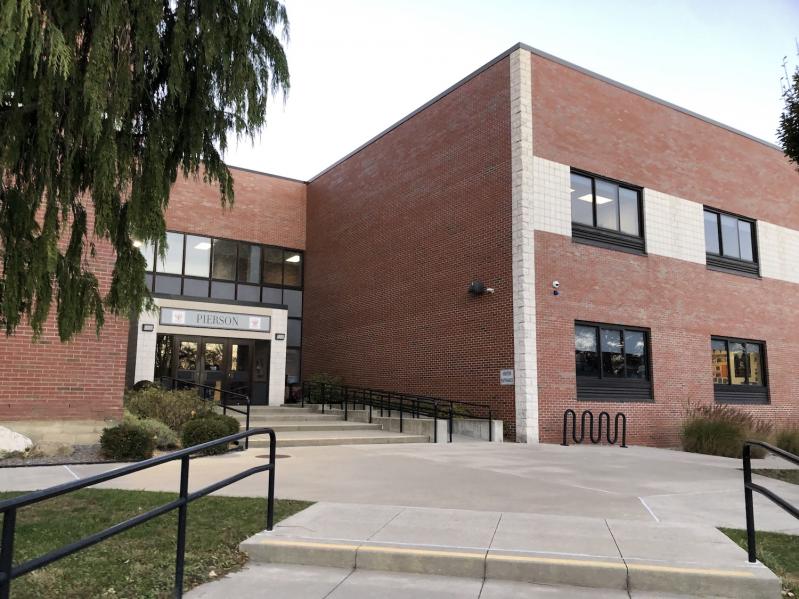The Sag Harbor School Board on Monday approved end-of-year deposits into five of its reserve accounts, setting aside money for future expenses in the areas of technology and security, insurance, retirement benefits for teachers and other employees, and for facilities needs.
The district’s facilities improvement capital reserve fund was to have been drawn down if voters had approved the Marsden Street proposition last month. When it failed, however, the money remained in the district’s account, and together with the new $1.5 million deposit approved Monday, there will be close to $5 million in the account by the end of the month.
Residents can expect a presentation on the school district’s potential plans for using that money during a June 26 school board meeting. But Jeff Nichols, the superintendent, gave a short preview of those plans on Monday: Already there’s a consultant working on plans to upgrade security infrastructure, renovate the gymnasium at Pierson Middle and High School, and expand the Pierson science wing into a modern facility suitable for all students, prekindergarten through 12th grade, to access for classes and programs.
On June 26, Mr. Nichols said, the educational facilities planning committee will “present their prioritization of these issues in an advisory form” so that the school board can “approach it in a multiyear plan.”
But Grover Pagano, a village resident who was an opponent of the district’s efforts to buy the Marsden Street properties from a private developer, objected to the board’s vote to deposit money into the facilities improvement capital fund.
“Will you be retiring the $3.425 million, and if not, why, since your stated purpose of that reserve fund before the vote was earmarked for Marsden?” he asked.
Jennifer Buscemi, the district’s business administrator, clarified that the facilities reserve account had been set up “way before Marsden Street” was a possibility, and that it can be applied to “any kind of capital project that needed funding throughout the district,” subject to voter approval.
“We still have a lot of facilities needs . . . and we will continue to deposit funds at the end of the year until we hit our limit,” she said.
The reserve account is capped at $15 million over the 10-year period that started in July of 2021. Ms. Buscemi said some of the money in it had been left over from the previous iteration of the reserve account, forwarded with voter approval in May that year.
Mr. Pagano, who said he felt that the board had cut off his comments at the start of the meeting, stepped up to the lectern at the end of it to ask more questions and suggest that the money earmarked for Marsden Street should be used to pay off “existing bonded debt, and any overage goes to pay down the tax levy.”
Another Marsden Street opponent, Janis Donnaud, spoke via Zoom to ask another facility-related question, one that came up toward the end of the Marsden Street debate: Does the district have plans to add hot lunches for elementary school students? “Given that more than one-quarter of the elementary school students are food insecure, it would seem that is something that should be on the facilities committee’s radar, and fast, to try to resolve this issue within the village and the school,” she said.
Mr. Nichols responded to say the current system “is working very, very well.” The 26 percent of elementary school students who take part in the federal free-lunch program are provided with meals every day, he said. “We did discuss the issue at the educational facilities planning committee and talked about several scenarios that the committee will continue to talk about.”
Also Monday, the school board took another step toward resolving space needs by voting 5 to 0 to approve a one-year contract extension with the Park and Recreation Association of Sag Harbor for the use of Mashashimuet Park for school sports.
Sandi Kruel, the school board president, noted after the vote that the athletic director, Brian Tardif, “is still going to have to work to find a field for the girls soccer team. We do not have a field for that at the moment, nor does the park at this point.”
The one-year Mashashimuet Park contract is for $226,777, an increase of $5,531, or about 2.5 percent, over the current year’s contract.
“We feel that for 2023-24, the contract is in good condition to be approved,” Mr. Nichols said.

